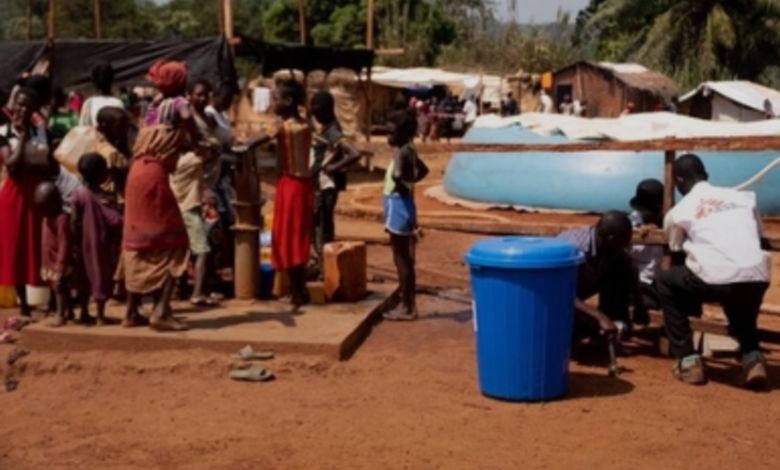MSF Deploying Emergency Teams For Rising Conflict In Central African Republic
The NGO has contributed personnel, medical, and other resources to helping CAR citizens caught in war.

Médecins San Frontières, an international NGO, is assisting violence victims in the Central African Republic.
The NGO has deployed doctors and emergency teams to help the most displaced communities in Bossembélé, Grimari, and Ippy.
In response to the conflict, MSF has begun running mobile clinics in existing healthcare facilities, schools, and camps for displaced people.
They ran mobile clinics in some communities for months and intend to conduct follow-up visits to monitor the situation and reach more villages.
Security and humanitarian situation is rapidly deteriorating as clashes escalate between armed groups, supported by government forces and foreign troops linked to the electoral process.
Since late Dec., the spike in violence has forced 280,000 people to flee their homes. About 8,000 displaced people in Grimari had to take refuge in front of local hospitals, while 3,000 stayed in nearby areas in mid-February.
Also, 1,200 took refuge in a hospital at Bossembélé, while 80,000 fled far away towns and stayed in the bush for eight weeks. MSF team found 3,600 displaced people around the Central town of Ippy.
“We heard rumours of the arrival of Armed men and ran with our family and few belongings,” says Bruno, a civilian from Ngreko near Grimari.
“They forced us to fight on their side,” said Bruno when he and two others were caught hiding in the bush.
In response to the violence, MSF has strengthened the hospital capacity in Grimari, Bossembélé, and Ippy, training staff from NGO, donating medicines and putting in place casualty plans.
This will help improve rapid response in patients and treat between 20 and 30 war-wounded patients.
On Monday 28, Dec., a truck filled with civilians was attacked and multiple deaths were recorded, including a staff of MSF.
Survivors were rescued by MSF teams and treated in an MSF-supported hospital in Bambari. Twenty-five per cent (30 out of 119) with war wounds were treated by MSF in Bambari.
EURECA, the MSF emergency mobile team treated nine people with wounds including two critical cases in Ippy.
The violence has also affected the healthcare system where medical supplies are looted, workers are evacuated, and medical services are disrupted.
“We found the walls and roof damaged by bullet holes, and blood stains on the walls,” Renate Sinke, MSF emergency coordinator.
As a result of the war, sexual violence has become rampant through the region.
“Women are particularly vulnerable and have found themselves caught in mass rapes perpetrated by armed men,” says Narin Fanfoglu, the coordinator of the emergency response team EURECA.
MSF has provided medical and psychological care to 29 survivals of sexual violence. MSF treated 16 survivors with trained hospital staff provided to respond to patient on sexual violence.
“This is the tip of the iceberg, many women do not come to us because they are afraid of reprisal,” says Narin.
In Grimari, MSF has set out campaigns and outreach to raise awareness to stop stigmatization among communities.
Support Our Journalism
There are millions of ordinary people affected by conflict in Africa whose stories are missing in the mainstream media. HumAngle is determined to tell those challenging and under-reported stories, hoping that the people impacted by these conflicts will find the safety and security they deserve.
To ensure that we continue to provide public service coverage, we have a small favour to ask you. We want you to be part of our journalistic endeavour by contributing a token to us.
Your donation will further promote a robust, free, and independent media.
Donate HereStay Closer To The Stories That Matter




